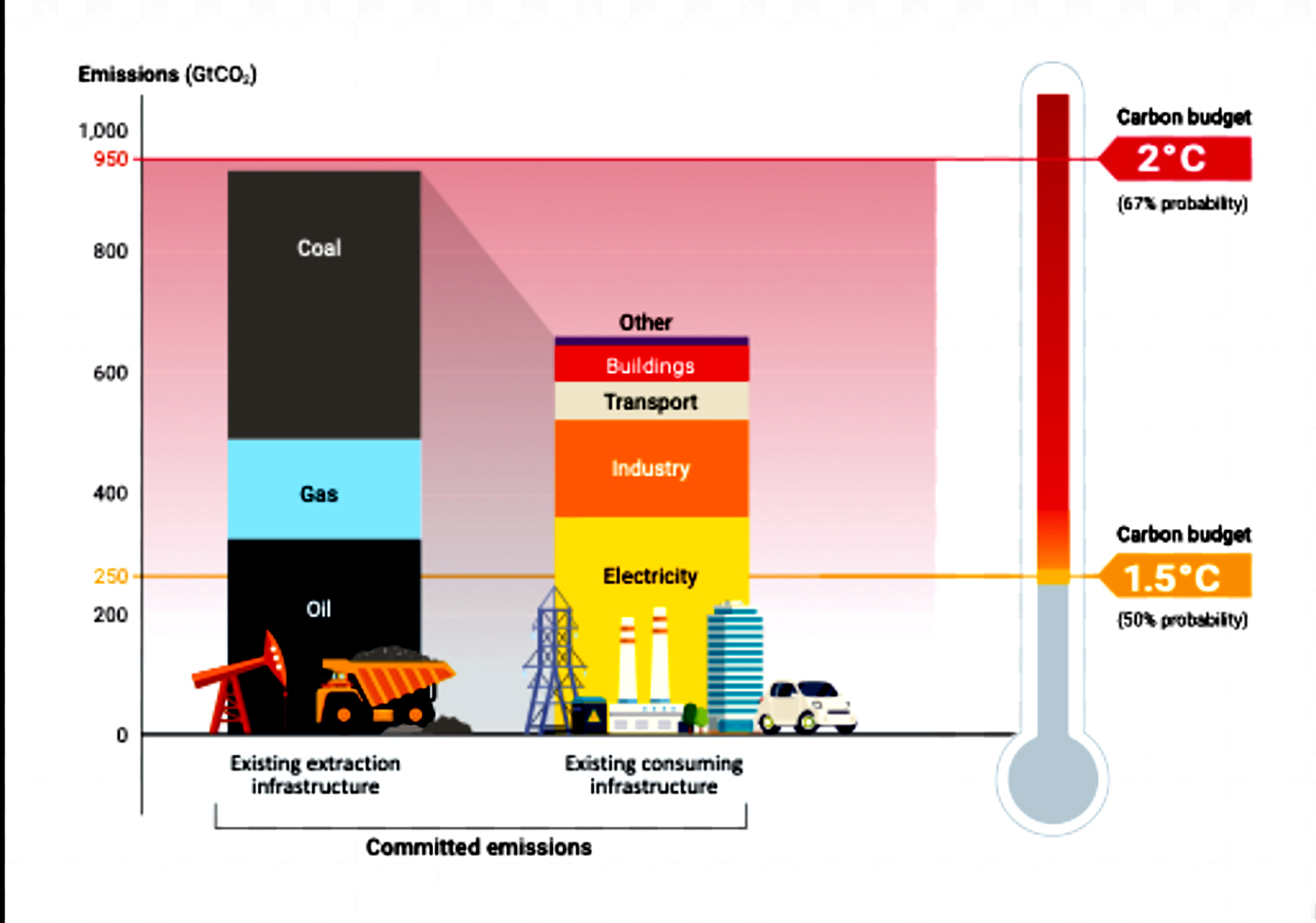Released ahead of this year’s UN Climate Change Conference (COP28) that begins in Dubai at the end of the month, the latest UN Environment Programme (Unep) report, Broken Record – Temperatures hit new highs, yet world fails to cut emissions (again), has found that humanity needs to cut greenhouse gas emissions by 28% to limit global warming by 2030 to 2°C above pre-industrial levels, while emissions need to be slashed by 42% to limit global warming to 1.5°C.
However, we are not even close to being on track for that.
“The Unep Emissions Gap Report this year has highlighted that the world is far off track in meeting the goals of the Paris Agreement, and is not in line with the reductions in emissions required by 2030,” Jesse Burton, a senior energy policy and just transition researcher with the Energy Systems Research Group at UCT, told Daily Maverick.
If all nations fully implemented their Nationally Determined Contributions (NDCs) — actions that countries intend to take to reach the Paris Agreement’s goals — it would put the world on track to limit temperature rise to 2.9°C.
The report finds that, even in the most optimistic scenario, the likelihood of limiting warming to 1.5°C is only 14%.
But, if all conditional NDCs and net-zero pledges are met, limiting temperature rise to 2°C could be achieved. However, net-zero pledges are not currently considered credible: none of the G20 countries are reducing emissions at a pace consistent with their net-zero targets.
“If we cannot make 1.5°C, it’s not just a matter of, okay then we go to 2°C,” John Christensen, director of the Unep Copenhagen Climate Centre and lead author of this report, told Daily Maverick.
“It’s about getting as close as possible to 1.5°C — the difference in impact is huge. So every fraction of a degree matters.”
In 2015, when the Paris Agreement was signed, greenhouse gas (GHG) emissions, based on policies in place, were projected to increase by 16% by 2030; now the projected increase is 3%.
GHG emissions increased by 1.2% from 2021 to 2022 to reach a record of 57.4 gigatonnes of Carbon Dioxide Equivalent (GtCO2e). Similarly, GHG emissions across the G20 increased by 1.2% in 2022.
“If we’re supposed to get to the goals, we’re supposed to go down,” Christensen said. “We’re not supposed to increase by a smaller margin, we’re supposed to really go down. And that we haven’t reached yet.”
Carbon budget has run out
Christensen explained that climate science sets a “carbon budget. In the atmosphere, there’s a certain amount of carbon that you can emit, and then you have basically made the roof so thick that you reach 1.5°C, and whatever you put on top of that, it’s just going to add to it.”
And as CO2 stays in the atmosphere for a long time (some estimates are over a century), Christensen said, “I think by 2030 with the current emission levels, you’d have exhausted the carbon budget for one-and-a-half degrees.”
 Committed CO2 emissions from existing fossil fuel infrastructure, compared with carbon budgets reflecting the long-term temperature goal of the Paris Agreement. (Graphic: Unep Emissions Gap Report 2023)
Committed CO2 emissions from existing fossil fuel infrastructure, compared with carbon budgets reflecting the long-term temperature goal of the Paris Agreement. (Graphic: Unep Emissions Gap Report 2023)
Burton said the emissions of coal mines and oil and gas wells far exceeded the carbon budget available for 1.5°C, “meaning assets will be ‘stranded’ if we want to limit warming” and that “the existing fossil fuel mines and wells account for more than three times what we can safely emit for 1.5°C, and is close to exhausted for 2°C.”
Burton acknowledged that one of the challenges for developing countries had been the idea that there was still space left in the carbon budget, especially since Africa had contributed the least to global emissions, and investing in fossil fuel extraction drove economic development.
“But all these developments will exacerbate climate change,” said Burton. “And at a global level, these avenues are closing off and any new developments run the risk of joining that pile of already stranded assets, or must compete against those existing assets and add to the future emissions.”
The energy sector contributed 86% of global CO2 emissions, and the Unep report emphasised that a transition in this sector was critical.
Burton noted that high-income countries were not doing enough to lead the transition, with the US, Canada, Australia, Norway and the UK — the Global North countries with the greatest economic means to rapidly phase out production — responsible for the majority (51%) of planned new oil and gas fields through to 2050.
“But while it’s very clear that we’re not on track for 1.5°C, we’re not on track for 2°C, we also aren’t on track for the Sustainable Development Goals,” said Burton, adding that energy access, which was a much bigger challenge for Africa than reducing emissions, was way off track. The International Energy Agency reported this year that less than 2% of global investment in renewable energy went to Africa.
“So you have this opportunity where you can meet these two goals with one technology pathway. You can avoid emissions and you can address energy access challenges, which need to be addressed in any case from renewables,” Burton said.
The inequality of emissions
“For me, what was really interesting [about the Unep report] is that there’s inequality between countries, and there’s inequality within countries,” Burton said.
The report suggests that countries with greater capacity and responsibility for emissions — particularly high-income and high-emitting countries in the G20 — take more urgent action and provide financial and technical support to developing nations.
The report found that the US and the European Union contributed nearly a third of the total cumulative emissions from 1850 to 2021.
James Reeler, the senior manager of climate action at WWF South Africa, told Daily Maverick that looking at South Africa’s per capita emissions in a simple manner (emissions divided by the overall population), the country was above the world average. “This implies that SA has a significant commitment to mitigation of its own.”
Burton said SA’s average per capita emissions were very high because of its “strikingly” high coal dependency, with 88% of the country’s electricity coming from coal.
Reeler said the top 10% of income earners in SA contributed between four and five times more greenhouse gas emissions than the bottom 40%.
This mirrors the findings of the Unep report: that globally, the top 10% of individuals (ranked according to income or wealth) contribute 45-49% of total emissions. DM
https://www.youtube.com/watch?v=REeWvTRUpMk




 Committed CO2 emissions from existing fossil fuel infrastructure, compared with carbon budgets reflecting the long-term temperature goal of the Paris Agreement. (Graphic: Unep Emissions Gap Report 2023)
Committed CO2 emissions from existing fossil fuel infrastructure, compared with carbon budgets reflecting the long-term temperature goal of the Paris Agreement. (Graphic: Unep Emissions Gap Report 2023) 